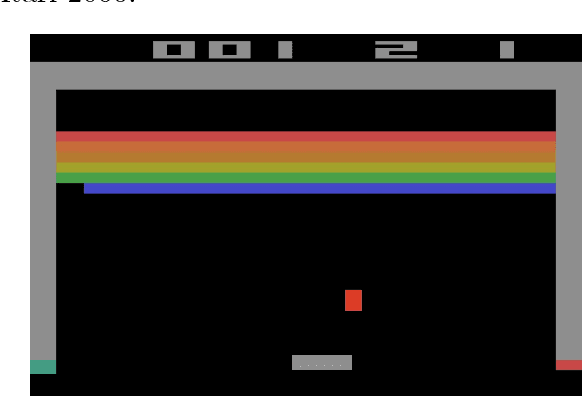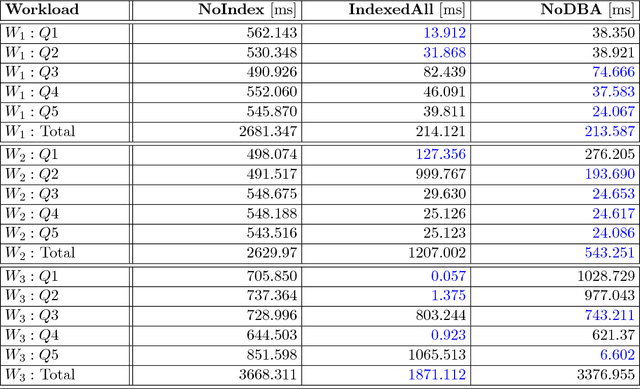Felix Martin Schuhknecht
The Case for Automatic Database Administration using Deep Reinforcement Learning
Jan 17, 2018



Abstract:Like any large software system, a full-fledged DBMS offers an overwhelming amount of configuration knobs. These range from static initialisation parameters like buffer sizes, degree of concurrency, or level of replication to complex runtime decisions like creating a secondary index on a particular column or reorganising the physical layout of the store. To simplify the configuration, industry grade DBMSs are usually shipped with various advisory tools, that provide recommendations for given workloads and machines. However, reality shows that the actual configuration, tuning, and maintenance is usually still done by a human administrator, relying on intuition and experience. Recent work on deep reinforcement learning has shown very promising results in solving problems, that require such a sense of intuition. For instance, it has been applied very successfully in learning how to play complicated games with enormous search spaces. Motivated by these achievements, in this work we explore how deep reinforcement learning can be used to administer a DBMS. First, we will describe how deep reinforcement learning can be used to automatically tune an arbitrary software system like a DBMS by defining a problem environment. Second, we showcase our concept of NoDBA at the concrete example of index selection and evaluate how well it recommends indexes for given workloads.
 Add to Chrome
Add to Chrome Add to Firefox
Add to Firefox Add to Edge
Add to Edge